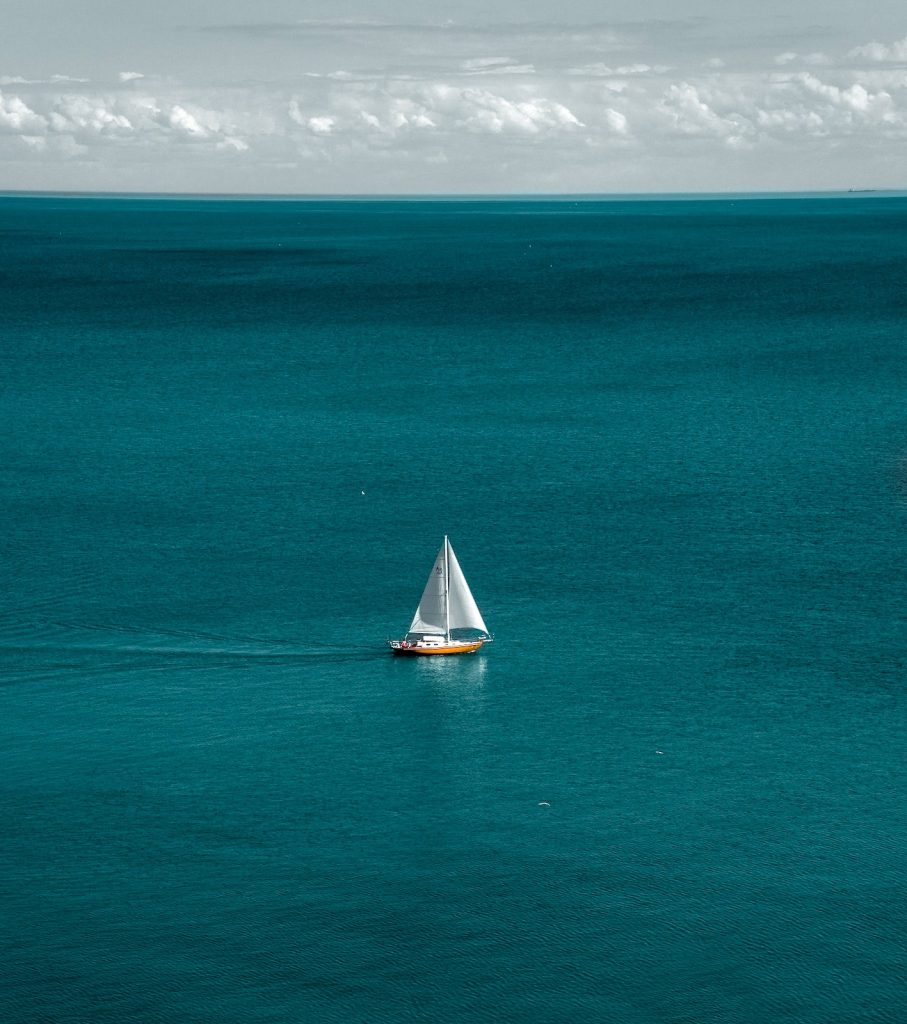One of the most powerful images of Zen practice, or zazen as all of life, comes from Master Dogen in the Shobogenzo, his masterwork:
Life can be compared to a time when a person is sailing a boat. On this boat, you are working the sail, you manage the rudder, you are handling the pole. At the same time, the boat is carrying you, and there is no “you” to sail without the boat. By your sailing of the boat, this boat is made to be a boat. Please study and understand profoundly just this instant of the present. Understand this fully. At this very instant, everything is nothing other than the world of the boat. The sky, the water, and the shore have all become this time of the boat, which is very different from what this time would be if there were no boat. Thus, life is what you make of it, and you are what life is making of you. While you are sailing in the boat, your body and mind, self and environment, are all essential pivot points of the boat; and the entire earth and all of space are all essential pivot points of the boat. That is to say, life is the self, and the self is life.
A rarity in our never-resting, never-satisfied, always running and chasing lives, the Zen practice of shikantaza, or “just sitting,” is sacred, whole, and complete on its own.
To be sure, what one does with body and mind while sitting is not to be neglected: assuming a balanced and stable posture; putting aside judgments of good and bad, likes and dislikes; not grabbing on to thoughts; not chasing after special states; returning to the breath, posture, and open awareness if one becomes tangled in thoughts and emotions. Yet, Master Dogen explained the simple act of sitting as a sacred action, the one place to be and one necessary act, and the fulfillment of all goals and desires. As Master Dogen put it, when sitting shikantaza, “There is nothing lacking. This zazen is all the sutras and commentaries. The Buddha seeing the Buddha is just this time of zazen.” When modern teachers leave out this description of shikantaza as wholly complete, they rob the practice of its real force.
Dogen’s analogy to sailing in the Shobogenzo is apt. Shikantaza is like sailing when the action of the boat moving through the water is whole and complete without any need for arriving at some port. The point and goal of sailing one’s boat is just sailing—the fulfillment of all that comes on the voyage in each instant. It’s sailing for sailing’s sake. There is no destination, no peak, no valley. In fact, the sailing itself is a constant arrival. One can never be off course on this trip to right here.
Naturally one tries to stay on a course, not to crash into the rocks, and not to sink. And it’s advisable not to get tangled in stormy weather. One certainly can have goals in life, and places to visit on the journey. One should seek to sail skillfully, keeping one’s lines clean and bow pointed away from the rocks and rough seas. However, even as we do so, that is really not what makes fine sailing in the analogy of shikantaza. It’s a wonderful trip, and this act of sailing is whole and complete even if one does crash into a reef, capsize, and go under.
After all, if we are just like waves of the water returning to the sea where we are all along, how can we drown? Even though we work to stay alive and afloat as long as possible, we are ultimately just water returning to the waters.
Shikantaza is radically nondemanding and goalless in that way. (Still, let us do what we can not to drown!)
Thank you for subscribing to Tricycle! As a nonprofit, we depend on readers like you to keep Buddhist teachings and practices widely available.
